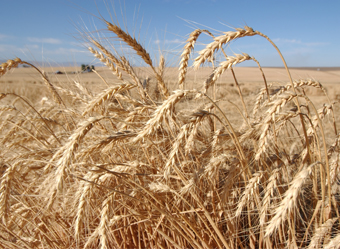U.S. wheat grabbed its first sale to the Egypt government in more than two years as the world’s biggest buyer has requested grain with a higher protein content, knocking France out of the mix.
American wheat represented two of the five cheapest offers accepted by Egypt’s General Authority for Supply Commodities in its latest tender, according to two traders involved who asked not to be identified because they’re not authorized to speak to the media.
U.S. sales to Egypt’s state-run buyer had stalled since 2015 after record production in other countries led to heavy price discounting. While Russian wheat has dominated the Egyptian tenders this season, accounting for almost 70 percent of the grain purchased, U.S. supplies are becoming more competitive with current domestic prices about 18 percent cheaper than the previous sale.
“It will create a little more urgency for U.S. wheat supplies from buyers who have been waiting for lower prices,” Alan Brugler, president of Brugler Marketing & Management in Omaha, Nebraska, said in a telephone interview. “These sales may also cause Russia to cut prices despite the strength of the ruble to prevent a further build in stocks.”
Benchmark wheat futures in Chicago rose Wednesday before the details of the latest tender were published, having dropped to a three-week low on May 16.
While French wheat was offered in the latest tender by Casillo Group and Glencore Plc, none was sold. Egypt sought grain with a 12.5 percent protein content, 0.5 of a percentage point higher than in previous tenders, traders familiar with the process said.
“The U.S. has plenty of 12.5 percent protein supply it can sell,” Brugler said.
The new standards are harder for France to meet. That’s another challenge for the nation, which is struggling with a stronger euro and a smaller supply left over from last season.
“The euro-dollar is not a good thing for French wheat, so I don’t think France would have been competitive anyway, even if the protein rules hadn’t changed,” Pierre Tronc, a broker at BGC Partners in Geneva, said Wednesday before the offers were made public. “If the new rules with higher protein content remain going forward, it could be a major concern for French wheat.”
Source: Bloomberg and European Supermarket Magazine
